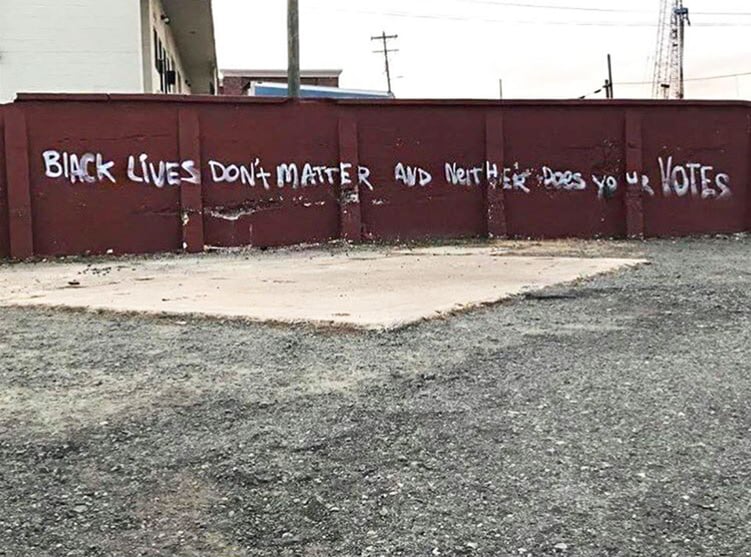
A month since the US presidential election has passed and I'm still reflecting on events from the first days following the results. It has over-delivered on what I feared most: an open platform for bigotry, hate, and violence:
White students in schools chanted "Build the wall,'" "White power," and "Heil Hitler." White students formed a "wall" to block Latino students from entering school. Rainbow flags burned. Confederate flags raised. Muslim girls and women attacked on the subway, on the street, in stores, and in school.
The New York Times compiled photos and videos of incidents on school campuses. You can see additional compilations of tweets and other social media posts documenting these incidents here.
"Facing history" is almost always easier than "facing ourselves." There is a distance to history that can offer safety. When we're in the thick, in the now, emotions run high and can paralyze us. It can be difficult to find perspective.
Right now we are in a critical "facing ourselves" moment.
This is a harsh wake up call for many Americans who cannot fathom that this is who we are as a country. Others, especially people of color, immigrants, Muslims, and LGBTQ communities, have long felt excluded or in danger.
This is our history. This is our present. But this cannot be the new normal.
How and what we teach our children has never mattered more.
How we come together matters too. This is a time to be Upstanders, not bystanders, in the face of injustice.
Ali Michael says it plainly: Bigotry is not a democratic value. Her poignant blog, What Do We Tell The Children? has become my personal mantra. I have returned to it over and over in the days since the election and will keep it close.
We have so much work to do.
Are you looking for ways to address the US presidential election? Browse through our collection of post-election resources, strategies, and discussions that can help you and your students have productive, respectful, and meaningful conversations.
This post originally appeared on Facing History's Los Angeles blog, Learn+Teach+Share on November 11.
Photo courtesy of Twitter/@PINOCCHIO_LIES


